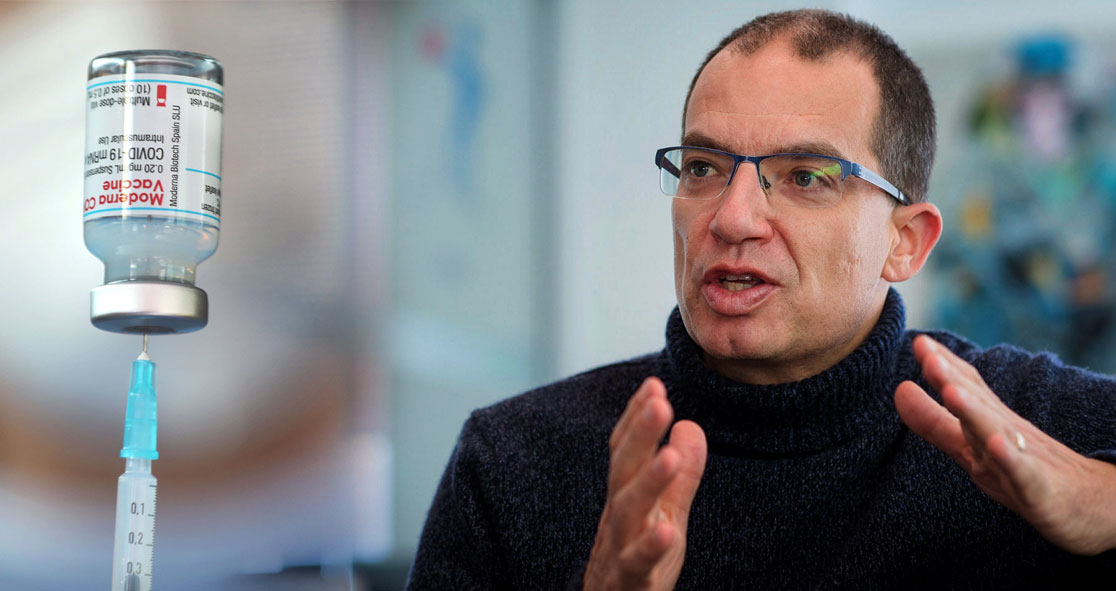On Thursday, Moderna CEO Stéphane Bancel said the efficacy of booster doses against COVID will likely decline over time, suggesting that people may need a fourth shot in the fall to enhance their protection, according to CNBC.
He said people who received their boosters last fall might have enough protection to get them through the winter – when new infections are likely to surge.
However, Bancel said the efficacy of booster doses would probably decline over the course of several months.
In an interview with Goldman Sachs during the investment bank’s healthcare CEO conference, Bancel said, “I will be surprised when we get that data in the coming weeks that it’s holding nicely over time — I would expect that it’s not going to hold great,” citing the strength of the boosters.
Omicron is currently spreading across the world, including the United States. The nation has been experiencing 574,000 new cases daily, according to a CNBC analysis of data from Johns Hopkins University.
Bancel went on to say governments, including the United Kingdom and South Korea, have already ordered the doses in preparation.
He said, “I still believe we’re going to need boosters in the fall of ’22 and forward,” adding that older individuals and those with comorbidities might need annual boosters for years.
The Moderna CEO said, “We have been saying that we believe first this virus is not going away. We’re going to have to live with it.”
Last month, Moderna published preliminary data of its vaccine, which showed a 50 mcg booster shot increased the antibodies that block infection from Omicron 37-fold, while a 100 mcg booster increased those antibodies 83-fold, per CNBC.
Boosters have been playing a key role in public health strategies to control the virus, as protection from the initial two doses has taken a significant blow due to Omicron. However, the efficacy of boosters starts to decline after about four weeks.
Last month, Pfizer CEO Albert Bourla told CNBC that people might need a fourth dose. In fact, he said the shot might be needed sooner than expected due to the increased virulence of Omicron.
Bancel told Sachs Omicron could “accelerate the transition from the acute crisis caused by the virus to an endemic phase where enough people have immune protection so that Covid isn’t as disruptive to public life.”
“What is totally impossible to predict, is there a new mutation coming in a day, a week, three months that is worse in terms of severity of disease,” he said. “That’s a piece that we’ll have to just be cautious about.”























